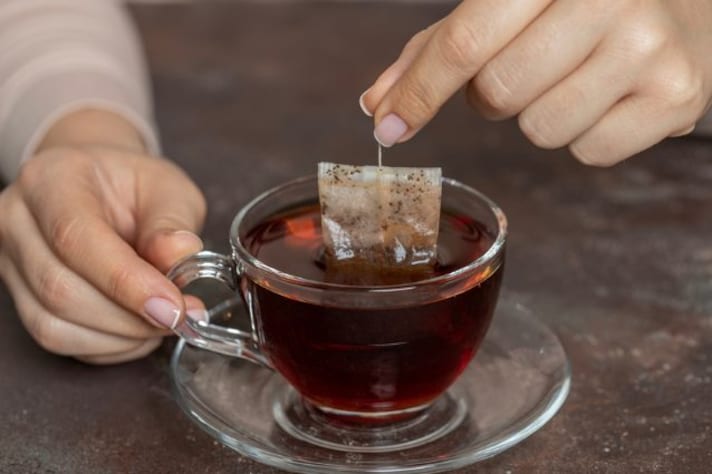Caffeine Consumption: How Often Should You Drink Coffee or Tea?
Caffeine, found in coffee and tea, is a go-to for many seeking energy and focus. But how much is too much? Understanding the right amount for your body can help you enjoy its benefits without the downsides. From timing to balancing coffee and tea, discover tips for optimizing your caffeine consumption for better health and productivity.
;Resize,width=742;)
Coffee and tea have long been beloved beverages, offering that much-needed boost in the morning or during a mid-afternoon slump. Whether you’re reaching for a cup of coffee or brewing some herbal tea, caffeine is a go-to for many people looking to enhance focus, energy, and alertness.
But with so many people consuming caffeine on a daily basis, it raises an important question: How often should you be drinking coffee or tea? Is too much caffeine harmful, or can you enjoy your daily cup (or two) without negative effects?
Let’s explore the science behind caffeine and how to find the ideal balance for optimal health.
How Caffeine Affects the Body
Caffeine is a natural stimulant found in coffee, tea, and other drinks. When consumed, it blocks the adenosine receptors in the brain, which helps you feel more awake and alert. Caffeine also stimulates the release of dopamine, often referred to as the “feel-good” neurotransmitter.
Benefits of Moderate Caffeine Consumption:
✔ Improved Mental Focus – Helps with concentration and cognitive function.
✔ Increased Physical Performance – Boosts endurance during workouts.
✔ Elevated Mood – Provides an uplifting effect, especially in the morning.
✔ Fat Burning – Increases metabolism temporarily, aiding weight loss efforts.
However, like anything, too much of a good thing can be problematic. Let’s explore what happens when we overdo it.
How Much Caffeine Is Too Much?
The general guideline from the U.S. Food and Drug Administration (FDA) and American Heart Association (AHA) suggests that most adults can safely consume up to 400 milligrams of caffeine per day. That’s roughly equivalent to:
- Four 8-ounce cups of brewed coffee
- Ten 8-ounce cups of tea (depending on the type)
- Two energy drinks (depending on the brand)
Beyond this amount, people may start to experience side effects like jitters, insomnia, increased heart rate, or digestive issues. Consuming excessive caffeine over time can also lead to dependency, meaning you’ll need more to achieve the same stimulating effects.

The Benefits of Coffee: How Much Is Ideal?
For many, coffee is the go-to beverage for that first morning boost. But how often is too often?
Benefits of Coffee:
- Rich in Antioxidants – Coffee is packed with compounds that may reduce inflammation and protect against certain diseases.
- Improves Cognitive Function – Helps improve short-term memory and focus.
- Supports Physical Performance – The caffeine in coffee can enhance endurance during physical activity.
However, moderation is key. If you find yourself reaching for multiple cups of coffee a day, try sticking to a maximum of 3 cups daily for the best balance of benefits and minimal side effects.
Pro Tip: To avoid potential digestive discomfort or sleep disturbances, try cutting off coffee consumption by mid-afternoon.
The Perks of Tea: A Calmer Alternative
Tea, particularly green, black, and oolong varieties, offers many of the same caffeine benefits as coffee, but with a much gentler, more sustained energy boost. The caffeine in tea is released more gradually due to the presence of L-theanine, an amino acid that promotes relaxation.
Why Tea Is a Great Option:
- Gentle Caffeine Boost – Tea provides a more moderate, longer-lasting energy surge.
- Rich in Antioxidants – Green tea, in particular, is known for its potent antioxidant properties.
- Hydration Benefits – Tea contributes to overall hydration, unlike coffee, which can have a mild diuretic effect.
- Supports Calm Focus – The combination of caffeine and L-theanine can lead to a sense of focused calm, perfect for productivity without the jitters.
💡 Pro Tip: If you're sensitive to caffeine, consider opting for herbal teas like chamomile or peppermint, which are naturally caffeine-free and still offer relaxing benefits.

Caffeine and Sleep: The Importance of Timing
Caffeine can interfere with sleep quality, particularly if consumed too late in the day. Since caffeine’s stimulating effects can last for 3 to 5 hours (and sometimes even up to 10 hours), it’s best to avoid coffee or caffeinated tea at least 6 hours before bedtime to ensure it doesn’t disrupt your rest.
How to Time Your Caffeine Intake for Better Sleep:
✔ Morning Coffee – Enjoy your first cup soon after waking up for an early boost.
✔ Mid-Morning Tea – Opt for a second caffeine boost around 10:00 AM if needed, but avoid consuming caffeine in the afternoon.
✔ Limit Afternoon Picks – Instead of caffeinated drinks in the afternoon, choose decaf or herbal teas to keep hydration up without sacrificing sleep.
💡 Pro Tip: If you want to drink something warm in the evening, herbal teas like chamomile or valerian root can help promote relaxation and improve sleep.
Balancing Coffee and Tea for Optimal Health
The key to caffeine consumption is moderation and balance. Rather than relying on coffee or tea to get you through the day, focus on using these beverages as tools to enhance your energy and mental clarity, without overdoing it.
Tips for Finding the Right Balance:
- Mix It Up – Alternate between coffee and tea throughout the day to avoid overconsumption of caffeine.
- Hydrate Between Cups – Drink water alongside your coffee or tea to stay hydrated.
- Listen to Your Body – If you feel jittery, anxious, or have trouble sleeping, cut back and switch to a gentler tea.

Final Takeaway: Finding Your Perfect Caffeine Routine
There’s no one-size-fits-all answer when it comes to caffeine consumption. The ideal amount of coffee or tea varies depending on your lifestyle, health goals, and tolerance levels.
For most people, sticking to 3 cups of coffee or 4-5 cups of tea per day is a healthy range, but be mindful of your body’s signals and adjust accordingly.
;Resize,width=767;)
;Resize,width=712;)
;Resize,width=712;)

